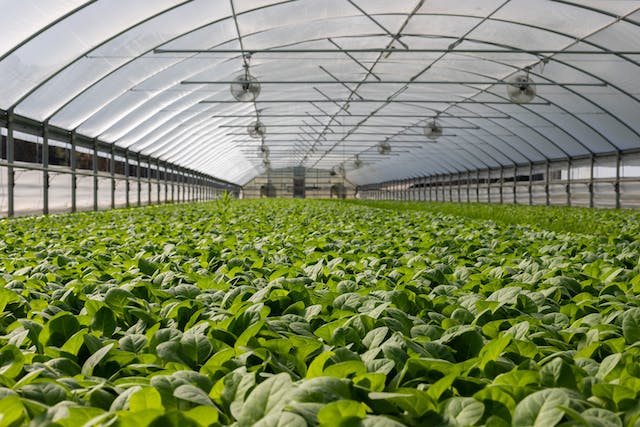Shortly before the end of 2023, the Environmental Audit Committee published a critical report on Environmental change and food security, which outlined some shocking findings and called for the government to act now. Westminster sometimes feels far away from our Northern city, so I’m bringing you the no-jargon version of the report. Food insecurity is a significant problem facing many Sheffield folk, and it’s set to get worse for more of us if our government doesn’t take action now.
The Report
The report’s main finding highlighted that climate change and biodiversity loss negatively impact the quality and quantity of food production in the UK and globally.
The effects of environmental change are already visible in the UK. In 2022, the summer heatwave reduced crop yields significantly; in 2023, we saw some of the wettest months on record, affecting farmers further. Spain and Morocco’s extreme weather led to missing fruits and vegetables on shelves in early 2023. COVID-19 and Russia’s invasion of Ukraine also added more pressure to the global food system over the past few years. And these extremes of weather are getting worse.
One particular point the report sought to highlight is how the food system is a significant contributor to climate change and nature loss, exacerbating the same environmental factors that threaten to destabilise the food system and food security. So, in this chicken-and-egg situation, what is to be done?
What is to be done?
The report recommends three essential things: strengthening our food and farming system, limiting the damage caused by climate change and loss of species, and reducing environmental harm caused by the food system. They then provided vital recommendations to the government to keep Britain nourished while protecting the planet.
To make sure we have enough food and protect the environment, the government must take the lead on strategy. The committee suggested the government create a cross-government, cross-sector food security body. This group should examine the food system and recommend policies to increase food resilience and address environmental issues, such as strategies to reduce food waste and improve soil health. New technologies in food production, such as Artificial Intelligence, should also be researched based on the government’s published priorities for agricultural innovation research and development and introduced where appropriate to improve productivity. Plus, the government should also publish a report every year to show how they are keeping our food supply safe.
The government should support farmers and food producers in implementing sustainable food practices. They must identify the areas where new strategies, practices and metrics are needed to achieve and measure progress towards sustainable food practices, such as keeping the soil healthy, protecting biodiversity, and reducing carbon emissions. The guidance can then be shared with farmers, for example, on how they can measure the health of their soil and how to improve it affordably.
To conserve water, the government should develop policies that make it easier to transport water between regions and support farmers in using technology that helps irrigate crops precisely. They should also develop a plan to increase farm water storage by 2050. The government should also ensure that small farmers have access to free advisory services and support them in adopting new technologies that can sustainably improve food production.
Improving the sustainability of our food production is a vital step in our fight against climate change. However, the report highlighted that consumer habits also have to change. The Climate Change Committee has recommended reducing meat and dairy consumption by 20% by 2030 and 35% by 2050. The Government can promote sustainable diets by publishing national guidance and educating students about the environmental impact of food production. Additionally, the Government should set a target for half of public money spent on food to be ring-fenced for food produced locally or to higher environmental standards.
Lastly, our government should use their voice on the global stage and uphold standards for the environmental impacts of food production in its trading relationships with other countries. Action must be taken globally, not just in our own backyard, if we are to stop the climate catastrophe.
Can I do anything to help?
Overall, the government needs to take steps to ensure that we have a sustainable food system that will be healthy for the environment and provide food for future generations. We know that while the government must take the lead, our city’s people want to take action too, so here are some things you can do in your own lives based on the report.
Most importantly, write to your local MP and councillors and tell them you support the committee’s recommendations and want them to be implemented. When it comes to food, buy local, UK-grown produce and support farmers that grow with the environment in mind. Eat seasonally when you can; it’s better for you and tastier too! If you are keen to be even greener, why not try your hand at composting? Composting is a vital part of rebuilding our soil health, even if it’s just at home. Or, if you are not sure where to start, come to a ShefFood growing and composting Working Group meeting.
After winning the Sustainable Food Places Silver Award in 2023, our city’s sustainable food system is growing, and there is plenty to get involved in this year.

